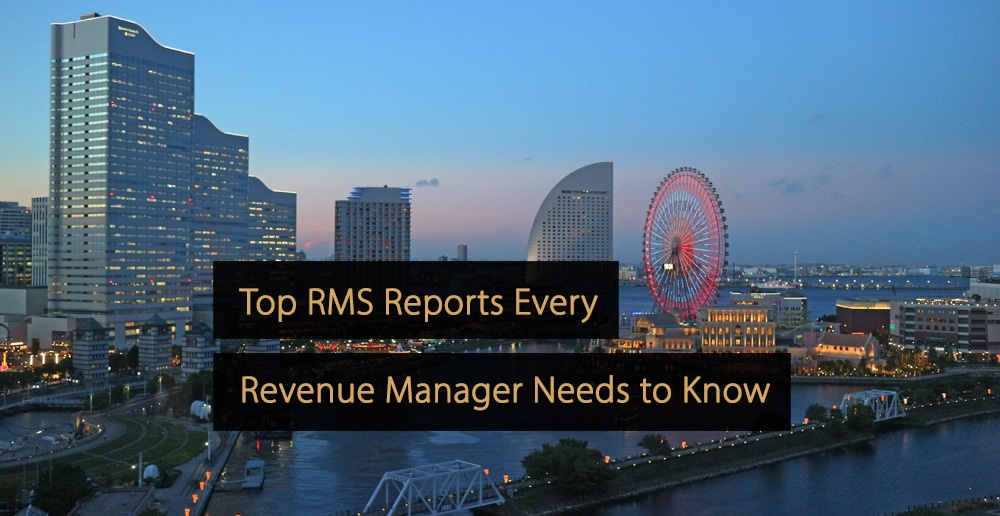Top RMS Reports Every Hotel Revenue Manager Needs to Know
Revenue managers have no shortage of data at their fingertips. To visualize that data in an understandable and actionable way, here are some top RMS reports that every revenue manager should be familiar with. RMS Reports Every Hotel Revenue Manager Needs to Know Below you'll find the top revenue management reports that every revenue manager should be familiar with to visualize data understandably. Pace Report The pace report reveals how well your pricing strategies are
Top Tips for Success in Content and Influencer Marketing Campaigns
Question for Our Hotel Marketing Expert Panel What advice can you offer to anyone considering a Content Marketing and/or Influencer Marketing campaign this year? (Question proposed by Sarah Dandashy) Our Marketing Expert Panel Sarah Dandashy - Travel & Hospitality Expert, Ask a Concierge Reshan Jayamanne - Digital Marketing & Sales Strategist, Bnb Optimized Adele Gutman - Culture and Guest Experience Expert, Hospitality Reputation Marketing Podcast Max Starkov -
How can Revenue Managers Collaborate on Decisions?
Question for Our Revenue Management Expert Panel: Are Revenue Managers overloaded with strategy and result decisions? How can Revenue Managers collaborate and share responsibilities with other teams? (Question proposed by Daniel Feitosa) Our Revenue Management Expert Panel Daniel Feitosa - Revenue Management Specialist Sandra Gannon - Commercial Consultant, Revenue Puzzle Patrick Wimble - Managing Director, Lightbulb Consulting Pablo Torres - Director Of Sales Marketing, Alannia Resorts Nikolas Hall
4 Tips to Appeal to MICE Planners on Your Hotel’s Website
Along with a surge in business travel, in-person events have returned with full strength, bringing a new scope for hotel properties. Therefore, if your hotel has a meeting or event space, you should capitalize on this golden opportunity by optimizing your website. In this article, you'll learn how to capture the MICE (Meeting, Incentives, Conferences, and Exhibitions) market segment of direct bookers. MICE Guests: The Opportunity Most likely, your hotel website is designed under the
Profitable Forecasting: How to Boost Hotel Profitability with Revenue Management
Well-run and profitable hotels are like a symphony where talented performers play their parts within the framework of the score. Their skilled cooperation creates the business foundation for the hotel to meet or exceed its business goals. Revenue management principles provide such a framework, with the revenue manager serving as the conductor. The Strategic Framework Behind Profitable Hotel Revenue Management Hoteliers can take multiple paths to profitable revenue management within this framework. It includes: Data Technology Competitive Analysis Brand Reputation Channel Management Starting and Dynamic Rates These elements of revenue management may surprise some hoteliers since there’s a common misconception
11 Hotel Marketing Podcasts Every Hotel Professional Should Listen To
Hotel marketing podcasts offer an excellent way for hotel professionals to access advice, learn new techniques and strategies, and hear first-hand insights and experiences from marketing experts. In this article, you can explore the rise of hotel marketing podcasts and read a list of 11 of the best podcasts available. Table of Contents: The Hotel Industry Explained What Are Hotel Marketing Podcasts? Why Is It Beneficial to Listen to Hotel Marketing Podcasts? Top 11 Hotel
4 Steps for Improving Meetings & Events Revenue Performance
Revenue leaders across the globe devote a considerable amount of their efforts to driving room revenue performance. It’s an understandable decision, given that rooms are the obvious staple of any hotel operation and there are only so many hours in a day. 4 Steps for Improving Meetings & Events Revenue Performance With meetings and events (M&E) being responsible for nearly 20 to 30 percent of revenue for the average hospitality organization, those who neglect to
Online Food Ordering System: Must-Have Features When Choosing One
An online food ordering system plays a key role in the restaurant industry, allowing customers to place orders and pay for them, while allowing your restaurant to receive orders, update inventory information, and access valuable customer data. In this article, you can learn about the most important features to look
Hotel Night Auditor: How Technology is Changing the Role in Hotels
A hotel night auditor has one of the most important roles within a modern hotel, handling many of the critical end-of-day tasks, including both front desk and accounting duties. In this article, you can examine the role technology is playing in assisting night auditors, while also learning about some of
Hotel Room Types & Room Pricing Tips for Hoteliers
Deciding what kinds of accommodation to offer your guests can be complex. In this article, you'll learn about the different types of hotel rooms, how they're categorized, and what types of guests they may attract. You'll learn about room categories based on use, number of occupants, and purpose, as well











